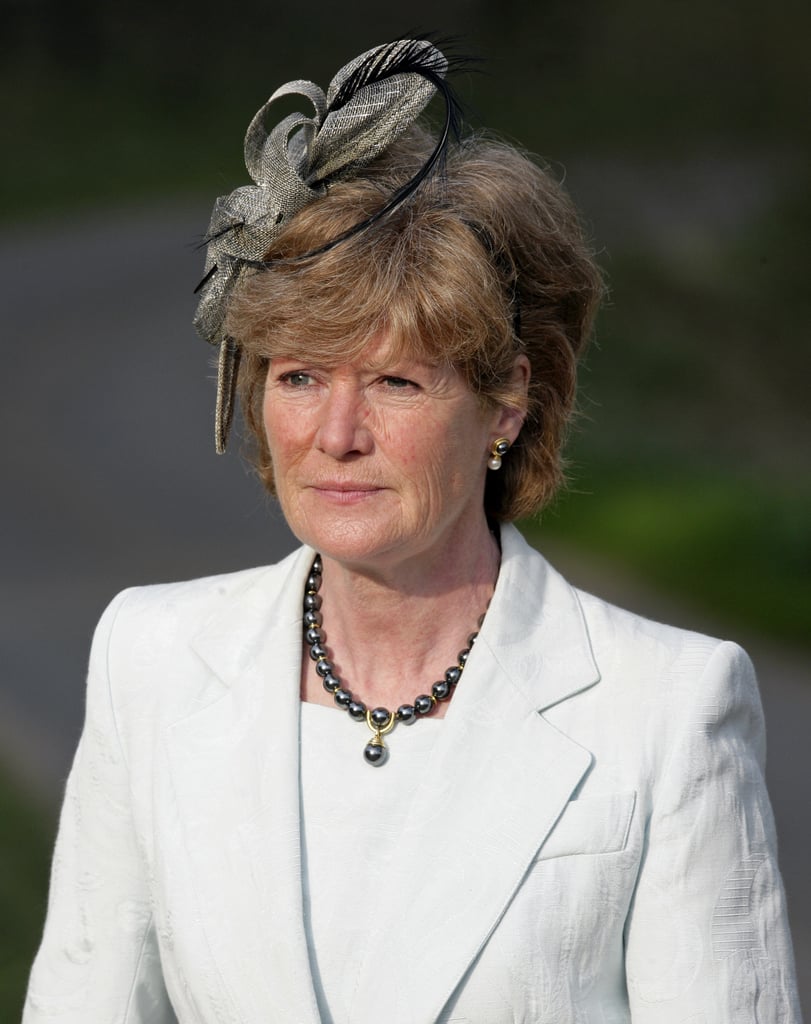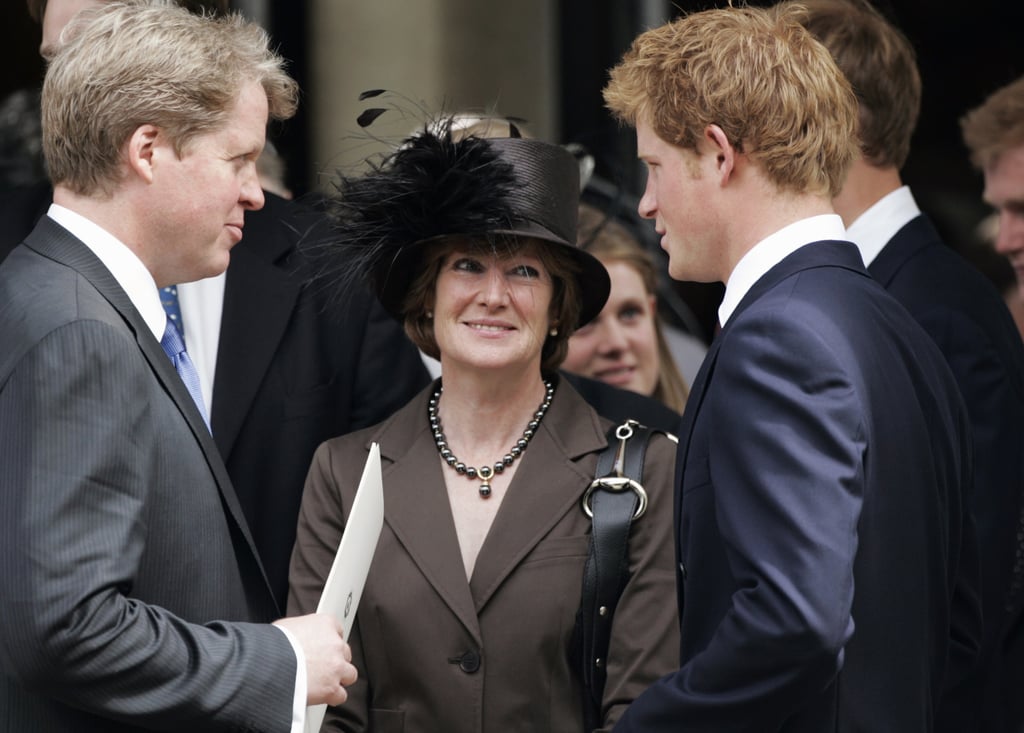Lady Sarah McCorquodale - What Does "Lady" Really Mean?
Detail Author:
- Name : Melyssa Rau
- Username : rebeca.wilderman
- Email : mshields@hotmail.com
- Birthdate : 1981-06-07
- Address : 56238 Annabelle Ridges Apt. 692 East Conner, AL 06509
- Phone : +1-725-328-5321
- Company : Bauch-Wolf
- Job : Fiber Product Cutting Machine Operator
- Bio : In molestiae alias sint nobis autem necessitatibus corrupti. Hic quaerat sunt illum perspiciatis harum laboriosam temporibus. Et ut vitae dignissimos aspernatur illum sunt ut. Cum quis ea et.
Socials
linkedin:
- url : https://linkedin.com/in/turcotte2025
- username : turcotte2025
- bio : Et laboriosam incidunt dolorem sed iure.
- followers : 125
- following : 548
instagram:
- url : https://instagram.com/mona.turcotte
- username : mona.turcotte
- bio : Enim fugiat quod facere consequatur. Ullam ex deserunt incidunt sequi. Voluptas quo aut et quia.
- followers : 3561
- following : 2537
tiktok:
- url : https://tiktok.com/@mona_turcotte
- username : mona_turcotte
- bio : Enim voluptatem et enim voluptatibus repellat laudantium iste.
- followers : 652
- following : 2352
twitter:
- url : https://twitter.com/mona_turcotte
- username : mona_turcotte
- bio : Et eum totam minima aspernatur cupiditate eos. Est eos omnis at dolorum. Ipsa quia dignissimos laborum qui.
- followers : 3410
- following : 1484
facebook:
- url : https://facebook.com/mturcotte
- username : mturcotte
- bio : Sit ipsum perspiciatis corporis rem est.
- followers : 5055
- following : 977
The way we use words can tell us so much about how we see the world, and there is that, how we understand others. Think about the word "lady," for instance. It's a term that, in some respects, carries quite a bit of weight and many different shades of meaning. When we hear a name like Lady Sarah McCorquodale, it brings to mind certain ideas, doesn't it? But what does that word truly suggest in our day and age?
For a good while, the word "lady" has been linked to a kind of respect, a certain way of acting, or even a position in society. It's more than just a simple description of someone. It can point to politeness, a sense of proper conduct, or perhaps even a higher social standing. It’s almost like a badge, telling us something about the person it describes.
Yet, the everyday use of "lady" can be a little different from its more formal meaning. You see it popping up in all sorts of places, from serious discussions to lighthearted jokes online. It’s very interesting, how a single word can hold such varied ideas, and how it keeps changing with the times.
Table of Contents
- The Many Shades of "Lady"
- Is "Lady" Just About Formality?
- "Lady" Versus "Woman" and "Girl" - What's the Difference?
- When Does "Lady" Become a Label?
- The Social Scene - "Lady" in the Digital World
- The 'Lady' in Lady Sarah McCorquodale - A Title's Weight
- Beyond the Label - What Makes a "Lady"?
- The Evolving Idea of "Lady"
The Many Shades of "Lady"
When people say "ladies," they are simply referring to more than one person who is a lady. It's the usual way to talk about a group. So, if you have many individuals, you say "ladies," which is pretty straightforward. It's a collective term, and it works just like "boys" or "girls" when you are speaking about more than one person.
Now, if something belongs to a lady, you would say "lady's." For example, if a bag belongs to a lady, you would call it "the lady's bag." This shows ownership, and it’s a standard rule in our language. It makes it clear that the item in question is connected to that one individual, which is very helpful for clarity.
Is "Lady" Just About Formality?
The word "lady" can, in fact, be used when you want to show respect or when you are in a formal setting. It is sometimes used to talk about someone's place in society, too. So, if you are speaking to someone in a very polite way, or if you are talking about someone who holds a particular position, you might choose to use "lady." It's a way of showing honor, or perhaps even a little distance, in a conversation. This is quite different from just calling someone a "woman," which is a more general term, isn't it?
It's also a good choice when you are speaking to someone in a way that shows honor. This could be in a public speech or when you are introducing someone important. The word carries a certain weight, suggesting good manners and proper behavior. This makes it a useful word for many situations where you want to be especially thoughtful with your words.
"Lady" Versus "Woman" and "Girl" - What's the Difference?
People often use "girl" and "lady" as if they mean the same thing, but they actually carry different ideas and expectations. "Girls" are usually linked with being young, having fun, and being curious about things. They bring to mind images of play and a sense of wonder, you know? It's about that early stage of life, full of discovery and simple joys.
On the other hand, "ladies" are often seen with more grown-up ideas and expectations. The word suggests a certain level of maturity and perhaps a way of carrying oneself. It’s about being older, more settled, and having a particular kind of presence. This distinction is quite important when you think about how people perceive others based on the words we use to describe them, isn't it?
The words "woman" and "lady" are both used to talk about a person who is female, but they have different feelings and uses. "Woman" is a more everyday and general term. It is a straightforward way to identify someone, without adding any special meaning. It's just a simple description, really.
However, "lady" has more specific ideas attached to it. It often suggests a certain manner or social setting. It can imply a level of refinement or a particular kind of social standing. So, while every lady is a woman, not every woman is thought of as a lady, according to these simple ideas. It's a subtle but important difference in how we understand these terms.
When Does "Lady" Become a Label?
Sometimes, the word "lady" can become a kind of label, especially when it is used in a negative way. For example, there was a video that became very popular on social media, where a person was called "lady racista." This happened after she said mean things to a police officer in Mexico City. In this case, "lady" was used to point out a bad behavior, turning what could be a respectful term into something quite negative. It shows how words can change their meaning based on how they are used, which is rather interesting.
There is also that, a popular saying that many social media users just can't stop repeating: "Do it lady!" This comes from a short comedy video that became very popular. Here, "lady" is used in a playful, encouraging way, almost like a catchphrase. It's a far cry from the formal use, isn't it? This really highlights how adaptable the word can be in modern speech, becoming part of everyday fun and internet culture.
The Social Scene - "Lady" in the Digital World
In the online world, the word "lady" can take on many different forms. You see it in funny videos, in serious news reports, and even in discussions about public figures. For instance, there are stories about people being called names like "lady racista," which shows how quickly a word can spread and become linked to an event. This kind of quick sharing means that words can get new meanings very fast, which is quite fascinating.
The way we talk about people online, especially with terms like "lady," can really shape how we see them. It's almost like a short hand for a whole story, isn't it? Whether it's about someone who has done something wrong or someone who is part of a funny moment, the word "lady" can become part of a larger conversation that millions of people are having. This shows just how powerful words can be when they are shared widely.
The 'Lady' in Lady Sarah McCorquodale - A Title's Weight
When we hear a name like Lady Sarah McCorquodale, the word "Lady" is part of her formal title. This use of "Lady" is about social standing and tradition. It's not just a general term; it points to a specific place within a system of titles and honors. This kind of use is very much about politeness and a long-standing way of doing things, which is quite different from how the word might be used in a casual conversation or on social media.
For someone with a title such as Lady Sarah McCorquodale, the word "Lady" carries a historical meaning. It suggests a connection to certain traditions and expectations that have been around for a long time. It’s about more than just being a female person; it's about being part of a particular lineage or having a recognized position. This really highlights how the word can have deep roots in culture and history, doesn't it?
Beyond the Label - What Makes a "Lady"?
The idea of what makes a "lady" goes beyond just being polite or having a certain social status. It often involves how one treats others. For example, a lady is usually someone who is not unkind to other women. She doesn't act like a mean person, which is pretty important. This suggests a kind of inner strength and goodness, rather than just outward appearances.
If someone is spiteful towards her, a lady simply ignores them and continues living her life in her own way. She doesn't get drawn into arguments or petty conflicts. This speaks to a sense of self-respect and a focus on one's own path. It's about choosing peace and dignity over drama, which is a very admirable quality, you know?
Furthermore, a lady tends to avoid using rude or vulgar language. This is about showing respect, not just for others, but for oneself as well. It's a way of communicating with thoughtfulness and care, choosing words that build up rather than tear down. These actions, rather than just a title or a formal way of speaking, truly shape what many people consider to be the essence of being a "lady."
The Evolving Idea of "Lady"
The meaning of "lady" has changed quite a bit over time, especially with shifts in how we think about gender. Since what some call the "gender revolution," some women have started to look at these terms in new ways. The traditional ideas linked to "lady" might not fit everyone's experience or desires anymore. This means the word is always being re-thought and re-shaped by people's experiences, which is quite natural for language, isn't it?
The conversations around words like "lady," "woman," and "girl" continue to develop. What one generation might have understood by "lady" could be different for the next. This ongoing change reflects how society itself is always moving and changing, and how our words try to keep up with those shifts. It’s a pretty good reminder that language is a living thing, always growing and adapting.

Who Is Princess Diana's Sister, Lady Sarah McCorquodale? | POPSUGAR
:upscale()/2020/11/17/953/n/44498184/9383860b23605d95_GettyImages-181298303.jpg)
Who Is Princess Diana's Sister, Lady Sarah McCorquodale? | PS Celebrity

Who Is Princess Diana's Sister, Lady Sarah McCorquodale? | POPSUGAR